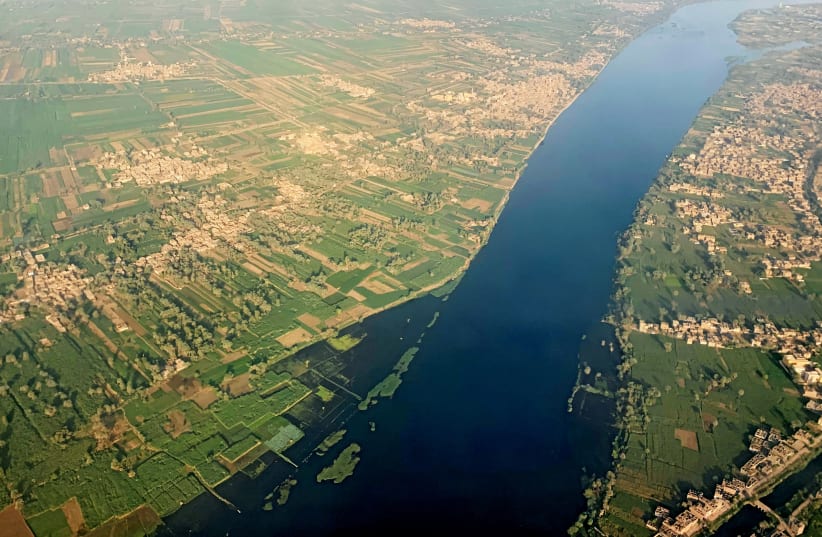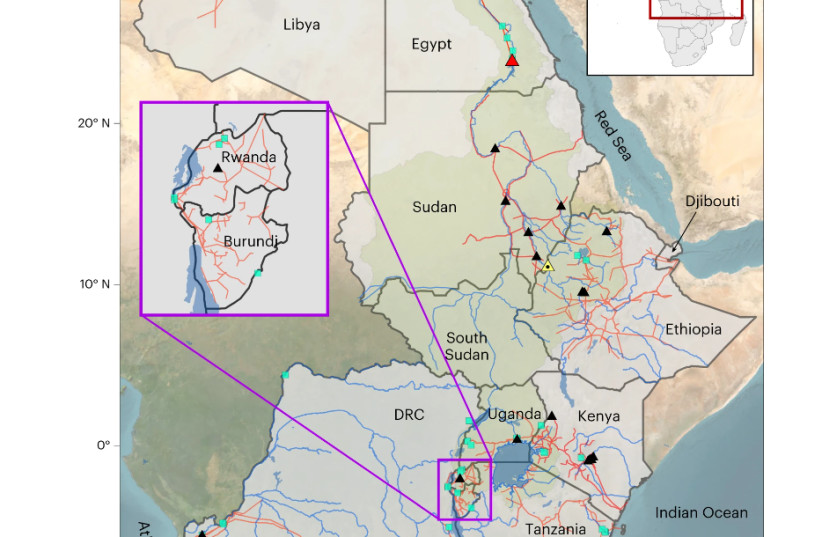The Nile has flowed and quenched the thirst of plants and people long before and since the ancient Israelites left Egypt, but it will not always continue to do so due to climate change and national disputes among countries that line its banks.
Scientists at the University of Manchester in the UK in collaboration with regional organizations have now shed light on a new, groundbreaking approach that could help resolve a dispute over the Nile’s water resources.
The Nile is the world’s longest river at 6,650 km. and meanders through 11 countries in East Africa, supplying water, energy production, environmental quality and cultural wealth. However, the use of Nile resources has been a long-standing source of tension, often overshadowing opportunities for cooperation and mutual benefit.
The Nile is the cause of tensions in the area
Trans-boundary rivers provide essential socio-economic and environmental services, with 310 trans-boundary river basins around the world geographically shared among 150 nations.
The Grand Ethiopian Renaissance Dam (GERD)
At the heart of the dispute lies the Grand Ethiopian Renaissance Dam (GERD) – a large dam on Ethiopia’s Blue Nile constructed to improve that country’s electricity output and to export electricity to neighboring countries. The project sparked tensions among Ethiopia, Sudan, and Egypt over water rights and access.
But as Africa’s demand for energy, water, and food steadily increases, the study – just published in the prestigious journal Nature Water under the title “Energy trade tempers Nile water conflict” – offers a glimmer of hope at a resolution.
The research retreats from traditional water-centric agreements and presents a detailed simulation of the combined energy-water system to reveal how different scenarios of international energy trades could help alleviate the Nile water conflict.
University of Manchester’s water-resource project manager Dr. Mikiyas Etichia said: “Traditionally, water disputes in trans-boundary river basins like the Nile have been approached through a water-centric viewpoint. However, sharing benefits of water resources, such as hydro-generated electricity, crops and fisheries can result in a win-win situation.”
University of Toronto civil and mineral engineer Prof. Mohammed Basheer and a coauthor added that in the Nile Basin, energy-river basin benefit-sharing projects have been implemented in the past on a small scale, but detailed tools like the one presented in the paper can help create actionable large-scale proposals.”
The simulator, designed by the scientists using open-source technology, covers 13 East African countries, including those within the Nile Basin, to model potential energy trade agreements among the three countries.
By increasing electricity trade, countries can simultaneously address water deficits, boost hydropower generation, reduce energy curtailment, and cut greenhouse gas emission, the author said.
Water engineering Prof. Julien Harou of Manchester, explained that “the energy trades tested in this study provide the countries a range of solutions that are likely in their national interest. Implementation of the arrangements proposed here would need to be further assessed from governance and legal perspectives to become viable proposals, but if successful, they could contribute to sustainable resource management and regional stability. We hope the new analytical tools or their results will be taken up by the negotiating parties.”

